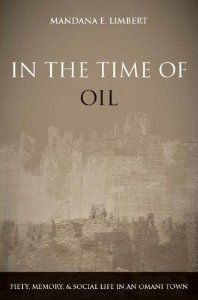 Mandana
Limbert
Mandana
Limbert
| Mandana Limbert received her PhD from the University of Michigan in 2002 and joined CUNY the same year. She is the recipient of numerous grants, including from the American Council of Learned Societies (ACLS), the National Endowment for the Humanities (NEH), and the CUNY Advanced Research Collaborative (ARC). In 2023, Professor Limbert was inducted into the Austrian Academy of Sciences. Professor Limbert’s research explores social and cultural tensions wrought by modern state-building projects in the Arabian Peninsula. Focusing on the Sultanate of Oman, an oil-rich country on the edge of the Indian Ocean with a long history of Islamic scholarship and trans-oceanic trade with East Africa, she has been particularly interested in the ways legacies and representations of the past as well as local and transnational understandings of Islam have been integral to peoples’ everyday experiences of modern state formation. She has two primary fields of research: one pertaining to infrastructure, the environment, and temporality and the other to Indian Ocean travel, race, marriage, and the formation of territorial homeland. In addition to her articles and book chapters on oil, temporality, and the environment in Southern Arabia in, for example, Social Text, Ethnos, The Journal of the Royal Anthropological Institute, and Cultural Anthropology, she is the author of In the Time of Oil, Stanford University Press (2010) and two edited volumes, Timely Assets, School of American Research (2008) and Life Worlds of Middle Eastern Oil, Edinburgh University Press (2023). Her current book project, Oman, Zanzibar, and the Politics of Becoming Arab, is under contract with Stanford University Press. Her next project returns to the environment, with a focus on carbon capture, unseen worlds, and conspiracy. | Research
Focus:
Courses Taught:
|